Line, the mobile messaging app from Japan, is going public today in a dual Japan-U.S. IPO that could raise as much as $1.14 billion. The listing, which will happen in New York on Thursday and Tokyo on Friday, is set to be the largest from a tech company this year to date.
Yet, despite that, precious little is known about the company outside of Asia, where the vast majority of its users are located, and the challenges that it is up against.
Here’s what you need to know.
First off, on a basic level:
- Line is a free messaging app that goes beyond basic services like WhatsApp to offer stickers, social games, video calling, and a range of other accompanying apps that connect to the service.
- It is wholly owned by Naver, a Korean internet company that started the service following the devastating 2011 earthquake and tsunami in Japan. Naver picked Japan because it realized it couldn’t compete with Kakao, Korea’s dominant chat app. Line has close to 2,500 staff, around 1,000 of whom are located in Japan.
- Line reported that it has 218 million monthly active users worldwide, around two-thirds of whom are based in its top four countries: Japan, Thailand, Taiwan and Indonesia.
- Despite an effort to grow its userbase in Europe and the U.S. through sizable advertising in 2013 and 2014, Line last year refocused its efforts on Asia and new growth opportunities in the region.
- Line currently has more than 35 apps available to download, including its core messaging app, to a light version for emerging markets, social games, a music streaming service in Japan and Thailand, an Uber rival in Japan and Webtoons, its cartoon app. It also offers a payments service that sits inside the Line messaging app in its largest markets.
Line doesn’t have the vast userbase of WhatsApp (more than one billion active users), Facebook Messenger (over 900 million active users) or China’s WeChat (close to 700 million active users), but it is notable for pioneering a number of trends in messaging, particularly around monetization.
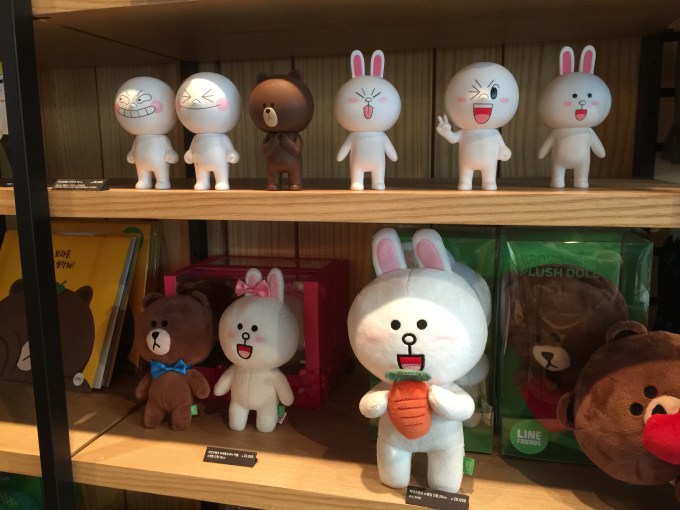
Strengths
Line grossed more than $1 billion in sales for the first time in 2015, more 40 percent of which came from in-app purchases within its social games. Line games have racked up a cumulative 628 million downloads, with 16 of those titles reaching at least 10 million downloads each.
The company has a very strong network of users. While it is possible to argue that having so many of its active users located in four markets is a negative sign of limited distribution, it also plays into Line’s favor because it means that the users in these markets are more engaged than usual because so many of their friends and family use the Line app.
Line stated in documents that 61 percent of its monthly active users are on the app on a daily basis, but that figure jumps to 73 percent in Line’s four biggest countries. High engagement like that gives Line an opportunity to turn its app into a platform which goes beyond chat to include services and value-add beyond just messaging. That’s crucial for making money from messaging since just throwing ads into the mix will ruin the user experience, plus it builds a moat that helps keep users in the Line app ecosystem rather than rival apps.
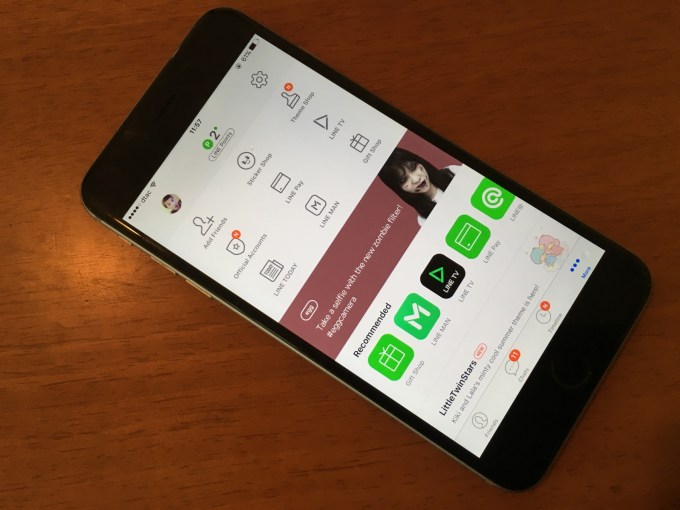
On that note: Line has been one of the pioneers of official accounts inside messaging apps. So, rather than spamming users with ads, it instead lets users receive promoted messages from brands that they opt in to follow. Facebook is following this principle for Messenger and, as I’ve written before, Line official accounts can be a hugely powerful way to reach and interact with consumers in a new and more direct way.
The company draws significant revenue, 30 percent of its sales, from this advertising model — which also include sticker sets which companies sponsor in order to make them available to users for free.
Directly related to that, Line has pioneered stickers. A couple of years ago they were viewed as an amusing fad by many people outside of Asia, but now practically every app offers stickers and makes money from doing so.
Line has made stickers meaningful and communicative for many of its users, and sales of sticker packs — which typically cost $2-3 dollars for a set for a dozen or two dozen — represent around one-quarter of its total revenue. Line made more than $270 million from sticker sales last year, that’s up 38 percent year-on-year.
It isn’t all rosy for Line, of course, and the company is up against some serious challenges which it will need to show investors that it is capable of managing.
Let’s start with the biggest elephant in the room: Facebook.
Facebook is still building out its plan to turn Messenger into a messaging platform that can bring in serious bucks — like Line does! — but it is clearly the top threat for Line.
In this day and age it is nearly impossible for messaging apps to ‘win’ new markets. Back in 2010 or 2011 perhaps Line or others could make a big push into a country with local marketing, partnerships, celebs etc to gain attention.
But times have changed.
The messaging app gold rush for users is over, most people have their chat app/apps of choice among their friends and shifting these networks in large number is hugely challenging. There’s no example of any country shifting its messaging app of choice. For example, Viber, the Rakuten-owned app, is fairly obscurely the top chat app in Myanmar simply because it became popular before the likes of Line and WeChat focused on the country. Line and others have poured vast sums of money into marketing their apps in the country but have found it hard to compete with the existing network effect that Viber enjoys there.
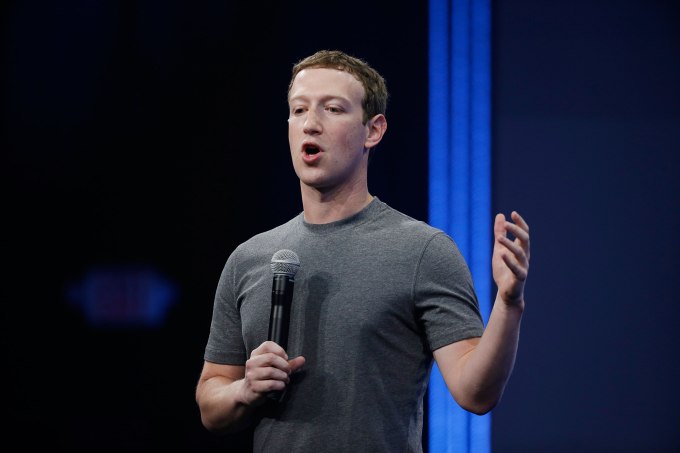
The fact that Viber, which got popular for providing good quality calls on limited 2G connections which you find in rural areas of Myanmar, can continue to rule supreme shows that many users are already locked into a chat app.
Facebook, however, is the exception to the rule here.
That’s because the social network, which has a colossal 1.6 billion active users per month, retains engagement with huge numbers of internet users. That includes those who use Line or other messaging apps in Asia, and particularly Southeast Asia were Line is gunning for growth. In Thailand, for example, where Line is the largest chat app, Facebook actually has more active users.
That ongoing touchpoint could be crucial in the future when Facebook decides to ramp up its efforts with Messenger outside of the U.S. and in the countries where Line is the top chat app, and other markets where Line believes it can grow.
Right now, as I mentioned earlier, Facebook is still refining its Messenger strategy and is very much focused on the West, but it has almost every brand, celebrity and influencer on the planet on its service, and, with offices in more and more countries worldwide, it could turn Messenger into a major rival to Line in the markets that Line is reliant on.
Line is the first company to go public with Facebook as its biggest rival. There’s an opportunity there, there could be major interest from bigger companies wanting a slice of the messaging space particularly in something with the potential to grow like Southeast Asia, but there is a huge and very obvious threat. It’ll be fascinating to watch Line and Facebook spar in the future.
Other challenges
Other more immediate concerns for Line include:
- Dependency on Japan
The country is world’s most lucrative market for games, but nearly 90 percent of Line’s revenue comes from Japan. There’s little evidence to suggest that Thailand, Indonesia (and to a lesser extent Taiwan) can be grown to significant revenue. (Just ask Lazada, the well-funded e-commerce firm that vastly underestimated the challenge of making money in Southeast Asia and needed an Alibaba bailout after running out of capital.)
- Dependency on mobile games
Gaming was 40 percent of Line’s revenue in 2015, its largest single line item for income.
Gaming can be high-grossing but it is also subject to fads and trends. Line’s games have performed well but, as we have seen in the past, just one title underperforming can drag the company’s revenue down.
“Historically, we have depended on a small number of games for a majority of our mobile game revenues, and we expect that this dependence will continue for the foreseeable future,” Line admitted in a filing.
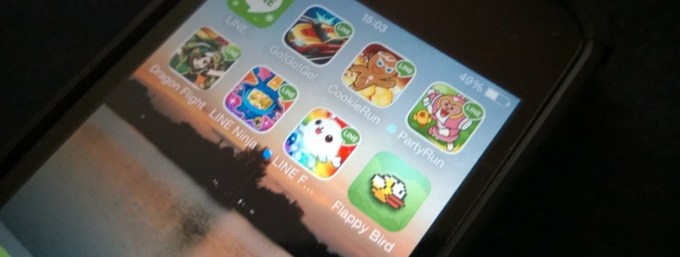
- Stagnant user growth
As outlined above, it is tough to win new markets when it is a winner-takes-all-market and you are not the top dog. It remains to be seen if Line, or any other messaging app firm for that matter, can make significant inroads into new countries now that consumers have largely made their choice of chat app. Clearly user growth is essential for any public company, as Twitter’s current situation shows.
- Nascent app ecosystem
To counter Facebook, Line has built its own network of apps and services to increase engagement with its users and unlock new revenue opportunities. Line Pay, Line Taxi, Line Music, Line Man (delivery), Line TV, have yet to really take of and certainly don’t account for significant revenue. That will need to change if Line is to grow as a company and keep investors happy.
- Profitability
Line was in the black in 2014 — posting a net profit of ¥2,004 million, around $19 million based on today’s rates — but its investment in new services saw it card a ¥7,972 million ($76 million) loss last year. With expansion plans still looming, it remains to be seen whether it will get out of the red in the immediate future.
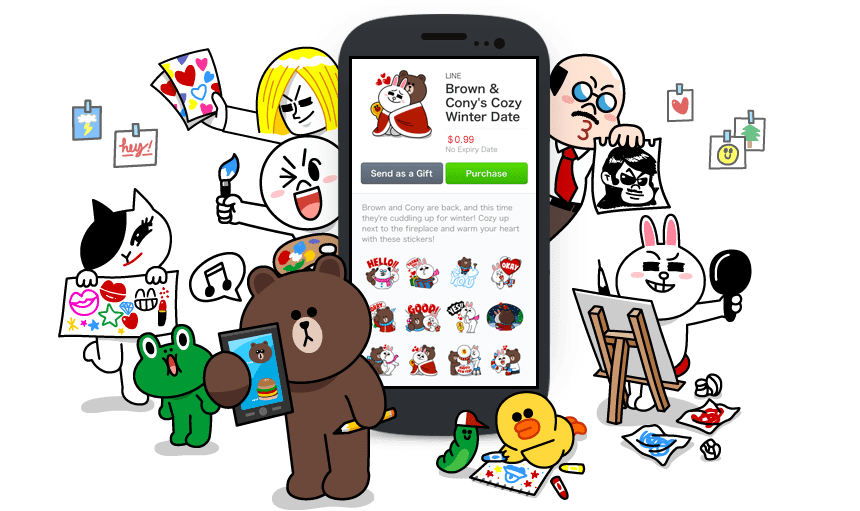






























Comment